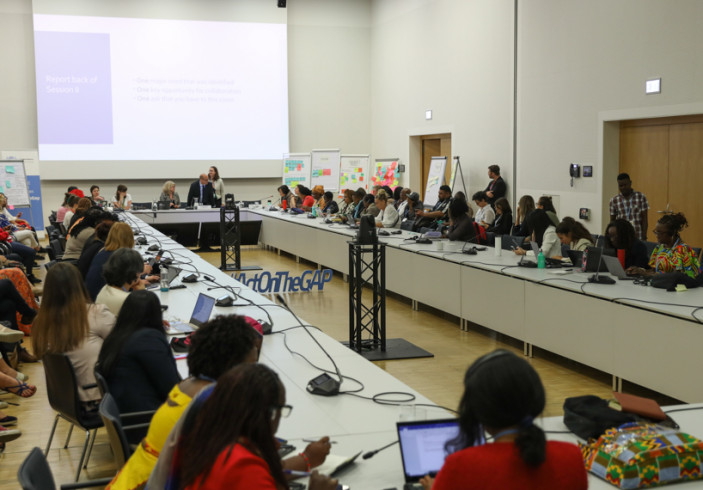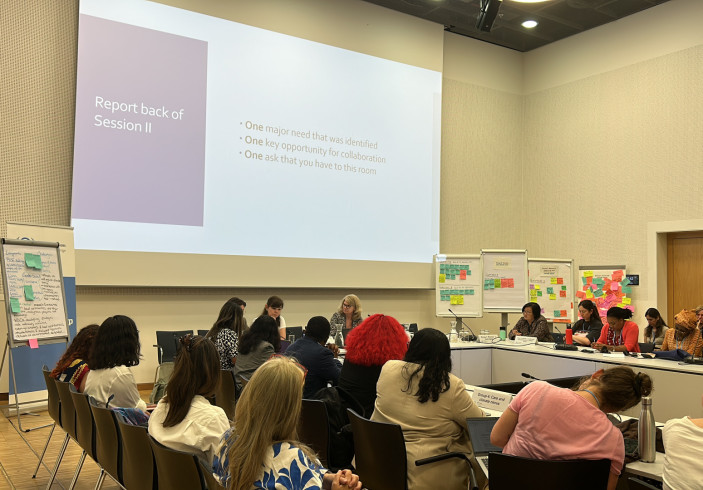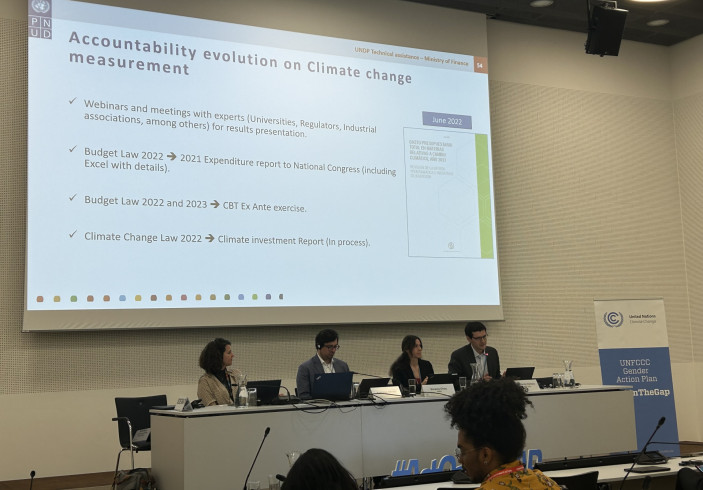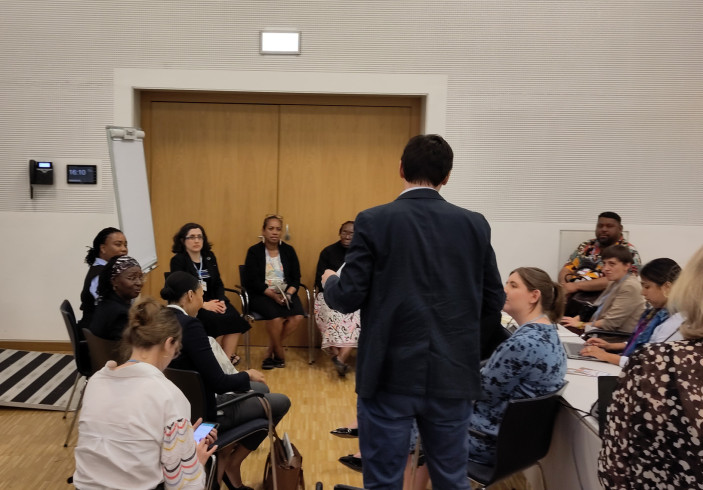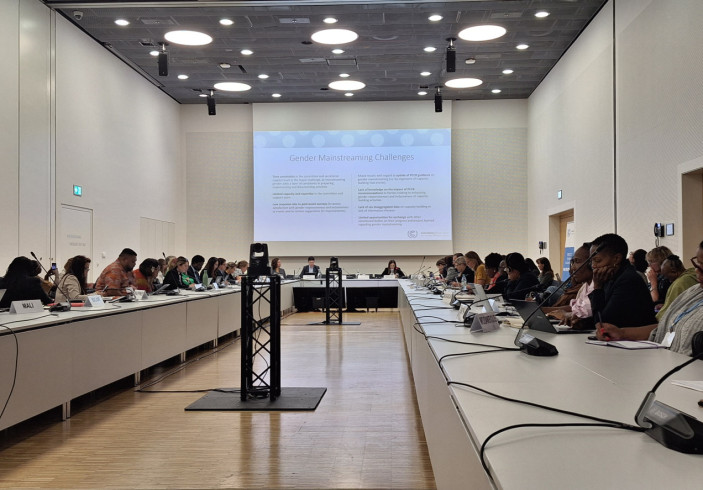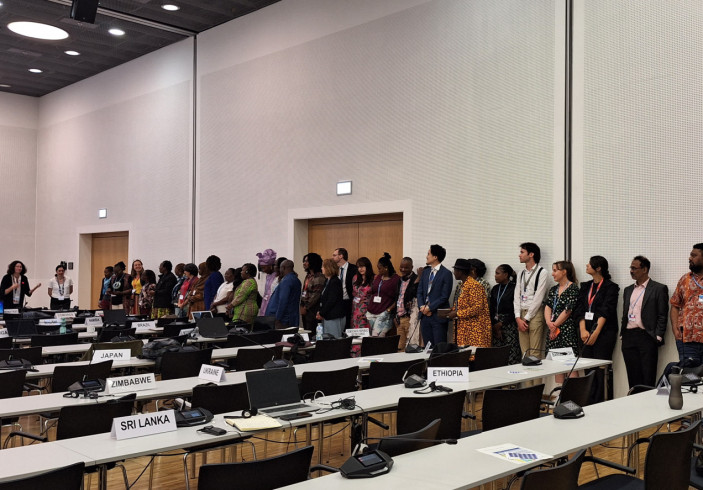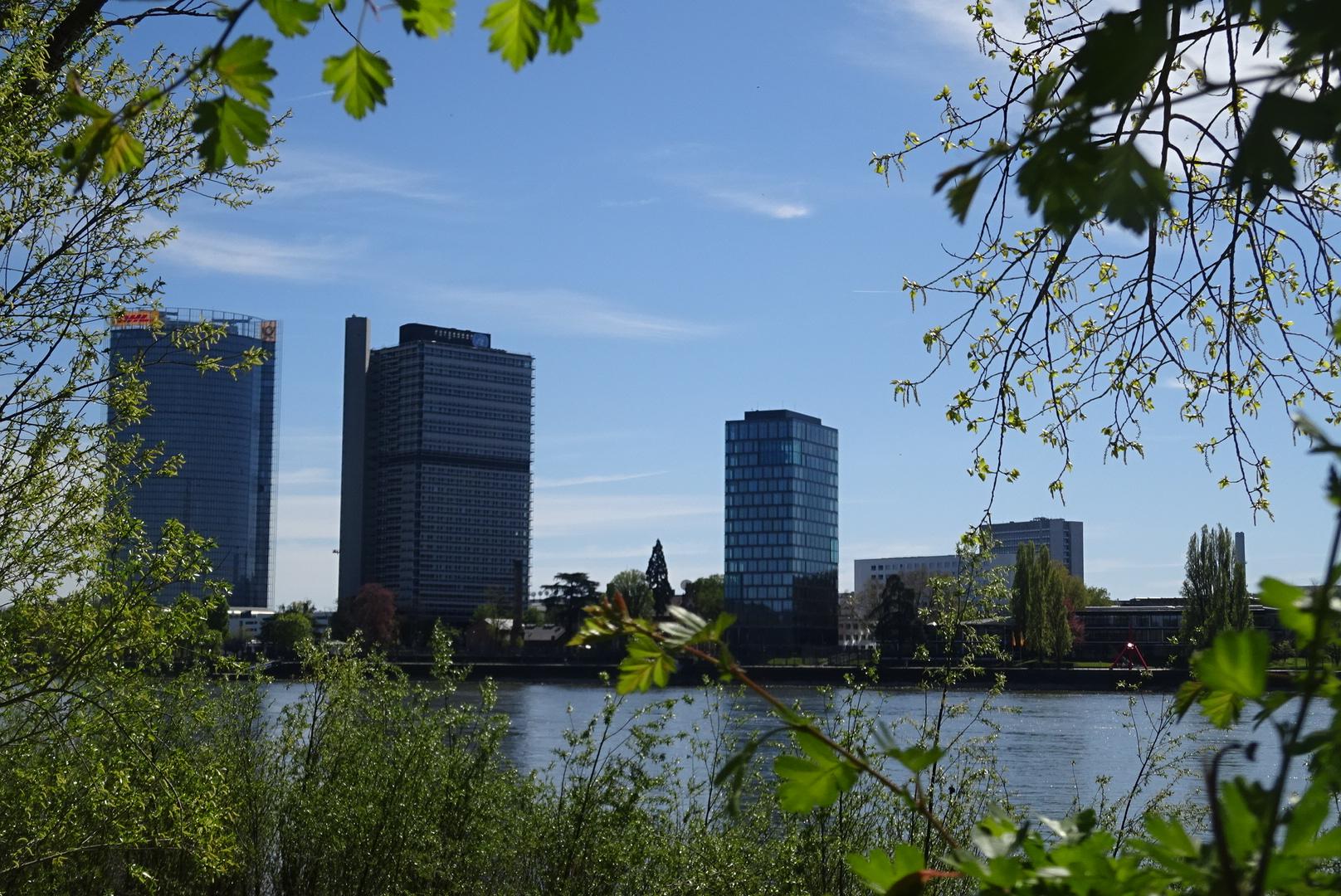Expert meeting to share experience and support capacity-building on gender budgeting, including on the integration of gender-responsive budgeting into national budgets to advance gender-responsive climate policies, plans, strategies and action, as appropriate (GAP activity D1)
13 and 14 June 2023
Meeting room Bangkok
World Conference Centre - Bonn, Germany
Background
The enhanced Lima work programme on gender and its gender action plan highlights the importance of gender-responsive means of implementation for ensuring effectiveness, fairness and sustainability of the implementation of the Convention and the Paris Agreement.
In particular, ensuring financing for gender and climate change action and ensuring gender-responsiveness of climate finance, were identified as a priority, including through an invitation to public and private entities to increase the gender-responsiveness of climate finance.[1] Parties reaffirmed the importance of gender-responsive finance as part of the intermediate review of activities under the gender action plan at COP 27 by encouraging Parties and relevant public and private entities to strengthen the gender responsiveness of climate finance with a view to further building the capacity of women and for implementation work under the gender action plan, and in order to facilitate simplified access to climate finance for grass-roots women’s organizations as well as for indigenous peoples, especially women, and local communities.[2]
Activity D.1 under the priority area on gender-responsive implementation and means of implementation includes an invitation to Parties, the secretariat and relevant organizations to share experiences and support capacity-building on gender budgeting, including on the integration of gender-responsive budgeting into national budgets to advance gender-responsive climate policies, plans, strategies and action, as appropriate in 2023.[3]
Context
An increasing number of Parties to the convention are integrating gender in their NDCs and recognizing it as a condition for ambitious, effective and just climate action. However, while 102 countries under UNDP’s Climate Promise countries integrate gender considerations in their NDCs, only 22 countries mentioned gender in relation to climate finance strategies or plans.[4] Further, does the fact that the integration of gender in long-term strategies is varied and a majority of LT-LEDS contains limited or no reference to gender[5] shows a continued need, both for financial support for policy formulation, alignment and gender integration as well as for the implementation of gender-responsive climate action.
As Parties are setting out to define a new collective quantified goal on finance the reality of an immense financing gap for climate adaptation and mitigation is undisputed with financing needs in the trillions.[6] While financing levels of Official Development Assistance (ODA) to climate action (USD 33.1 billion) and to climate ODA integrating gender equality (USD 18.9 billion) are at an all-time high, climate ODA that is dedicated to gender equality as the principal objective stood at only USD 778 million in 2018-2019 – a little over 0.04% of all climate-related ODA.[7] Moreover, women’s organizations receive only 0.13% of the total ODA, 0.4% of all gender related aid and 99% of development aid and foundation grants do not directly reach women’s organizations.[8]
While private financing will play a key role in enabling countries, communities and individuals to address the climate crisis, public finance remains key in the transition towards a climate-friendly, just and equitable society.
Objective
In collaboration with other organizations including UNDP the secretariat is organizing a meeting to introduce participants, including Party representatives, observers, experts, and those working on gender and climate change or financing, to the landscape of climate finance and its potential to enhance gender equality, with a focus on frameworks, methodologies and tools, such as gender budgeting, for integrating gender in public finance. The sessions will cover financing for the purpose of building capacity and systems that enable gender-responsive planning and implementation, as well as financing for climate policy and action that is gender-responsive. The meeting will enable participants to learn about tools and methodologies, including gender budgeting, facilitate the exchange of experiences and include country examples.
